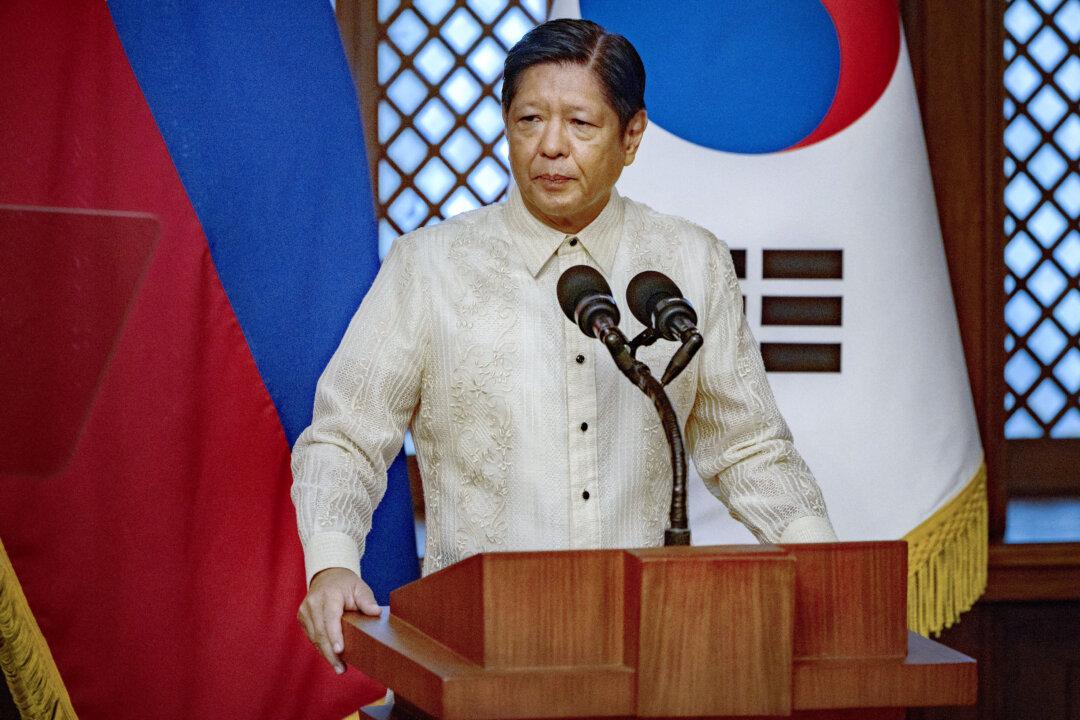U.S. and European officials said they are coordinating sanctions against Belarus after its authorities arrested a prominent opposition journalist from a plane diverted to the country with a bomb alert on Monday.
Raman Pratasevich, the co-founder of the Telegram messaging app’s Nexta channel, was arrested after the plane landed and is facing charges that could carry a prison sentence of up to 15 years.

Ryanair CEO Michael O’Leary described the incident as a first for a European airline and as a “state-sponsored hijack.”
Speaking to Irish radio station Newstalk, O'Leary said it was clear that “the intent of the Russian [sic] authorities was to remove a journalist and his travelling companion,“ and that he believes some ”KGB agents” were also offloaded from the aircraft, echoing a passenger who told Reuters that there appeared to be more empty seats on the final Minsk-Vilnius journey than when it took off from Athens.
O'Leary said Ryanair will have a detailed debrief on Tuesday with NATO and EU authorities and has asked them if Ryanair should fly around Belarus.
A spokeswoman for the Lithuanian prime minister said later on Monday that the latest information available from Ryanair suggested 126 passengers had departed the Greek capital and 121 were present on arrival in Lithuania.
Franak Viačorka, senior adviser to Belarus opposition leader Sviatlana Tsikhanouskaya, called for sanctions and a no-fly zone over Belarus.

U.S. Secretary of State Antony Blinken and UK Foreign Secretary Dominic Raab have both condemned the act by Belarus and demanded the immediate release of Pratasevich.
“Initial reports suggesting the involvement of the Belarusian security services and the use of Belarusian military aircraft to escort the plane are deeply concerning and require [a] full investigation,” he said.
Blinken said the United States is coordinating its response with partners including Lithuanian and Greek officials and the European Union.
Raab said Lukashenko’s action will have “serious implications.”
“The UK is working with our allies on a coordinated response, including further sanctions,” he said.
“The UK also calls for the ICAO [International Civil Aviation Organisation] Council to meet urgently to consider the regime’s flouting of the international rules safeguarding civil aviation.”

EU leaders have also sent signals of “strong” responses.
EU foreign policy chief Josep Borrell said the incident was “yet another blatant attempt by the Belarusian authorities to silence all opposition voices.”
EU Commission President Ursula von der Leyen earlier said it amounted to a “hijacking,” while Lithuanian President Gitanas Nauseda called it a “state-sponsored terror act.”
Irish Prime Minister Micheal Martin told national broadcaster RTE the diversion “certainly was a state-sponsored coercive act.”
“It reflects growing authoritarianism across the world,” Martin said. “These authoritarian figures taking premeditated decisions of this kind. … We have to respond very strong [sic] to it.”
Lithuanian Prime Minister Ingrida Simonyte said Belarus had committed an “act of state terrorism directed against the security of citizens of the European Union and other countries, civil society of Belarus seeking asylum from the regime’s persecution, as well as international civil aviation.”
Simonyte said she would work with Lithuania’s international partners to close the airspace of Belarus to international flights.
As Western leaders work on a coordinated response, politicians have called for Belarus to be suspended from international organisations.
The foreign committee chairs also called on NATO and EU countries to sanction the Belarus regime and suspend its ability to use Interpol and other international organizations.
The United States and the EU already have imposed sanctions on top Belarusian officials amid months of protests, which were triggered by Lukashenko’s reelection to a sixth presidential term in an August vote that the opposition rejected as rigged. More than 34,000 people have been arrested in Belarus since then, and thousands were brutally beaten.
The Belarusian Foreign Ministry on Monday bristled at what it described as “belligerent” EU statements, insisting that the country’s authorities acted “in full conformity with international rules.”





